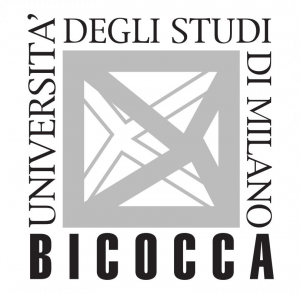I year
Compulsory activities
This doctoral course presents the logic of social scientific inquiry, theory building, and the fundamentals of social science research design. Emphasis is placed on principles that are applicable to all types of contemporary social research. The course focuses on such practical matters as (1) how to distinguish a theory from a philosophical assertion; (2) how to derive a falsifiable hypothesis from a theory; and (3) how to design a research project, carry out the research, and write up the results.
Hours: 8| Credits: 1
The course is designed to provide an understanding of inferential statistical analysis, supervised/unsupervised learning, Impact Evaluation, and Non-experimental methods using R software. Upon completion of the course, students will be able to grasp the essential features of the introduced statistical models and methods and apply them in empirical research. Furthermore, students will be adept at critically evaluating empirical economic research that employs the methods covered in the course. This involves recognizing potential methodological issues, comparing alternative econometric model specifications, and assessing the suitability of empirical results
Hours: 16| Credits: 2
The course incorporates real-world questions and data, and methods that are immediately relevant to the applications. At the end of the course students will be able to understand the basic properties of the econometric models and methods presented and apply them in empirical research. Students will be also able to critically read empirical economic research employing methods covered in the course, to identify their potential methodological problems, to compare alternative econometric model specifications and to assess the adequacy of empirical results.
Hours: 24| Credits: 2
The course will enable students to understand the underpinnings and methodological aims of the qualitative research methods; it will provide students ability to recognize the appropriateness of approaches, and solutions. Finally it will allow students to experiment the use of different approaches and related techniques for data collection and analysis.
Hours: 16| Credits: 2
The course aims to provide participants with the basic knowledge and skills necessary to evaluate and or conduct a literature review study. After introducing the important role of literature reviews for scientific knowledge, the course starts describing the general research process behind a literature review and then proceeds with four consequential steps. First, it analyzes relevant types of literature reviews and their specific research objectives. At this stage, the course is going to focus on two-three types of literature reviews, with systematic review being the archetype used to set a judgmental ideal type. As a second step, the course introduces the review protocols and their major guiding features. Third, it dedicates a session to critically analyze few selected examples of literature review studies. Finally, it proposes a training session to guide and support participants to design and start a study based on a literature review
Hours: 12| Credits: 1
The course aims to explore the theoretical foundations and research in management. The course examines some of the central questions in management with economic approaches as a starting point but with an eye to the links to strategic, organisational, and behavioural perspectives on these same questions.
Hours: 24| Credits: 3
This course provides the tools for understanding innovative activities, and the sources of innovation, including established firms and new ventures. It also discusses different types of innovations, including architectural innovations, and business model innovations. The program centers on the idea that a deep theoretical understanding of the drivers of change in established firms and startups is crucially important for both scholars and business practitioners.
Hours: 24| Credits: 3
The course provides an understanding of the marketing challenges faced by companies and the foundations of the marketing concept, to examine the latest marketing trends and creative marketing approaches, to develop a digital marketing and communication strategy to integrate theoretical contributions with case studies. Moreover, the course provides an overview of the main topics of consumer behavior to familiarize students with the theories and the methodological aspects that underlie consumer behavior theories and to integrate theoretical contributions with case studies.
Hours: 12| Credits: 1
The course focuses on the essential foundational knowledge of the European Green Deal and key elements driving sustainability and circular economy policies. Participants will be instructed to rethink business economics, generate value, and understand the principles and benefits of energy transition policies and the circular economy. They will delve into the dimensions of sustainability, the scope of efficiency and renewable energy, and circular economic policies, and will be equipped with all the necessary information to understand the transformative aspects of the new industrial policy.
Hours: 8| Credits: 1
Globalization refers to the growing interdependence of the world’s economies, cultures, and populations brought about by cross-border trade in goods and services, technology, and flows of investment, people, and information. In economics, globalization can be defined as the process by which businesses, organizations, and countries begin operating internationally. As with any change, globalization has winners and losers. It has led to increased living standards worldwide, benefitting society as a whole while harming certain groups. Understanding the relative costs and benefits may help alleviate problems while sustaining the wider payoffs. The aim of the course is to provide students with the conceptual and methodological tools to understand the reasons and implications of the globalization process. Besides basic theoretical instruments, the discussion will focus on the main trends in world trade, foreign investments, global production networks, and economic and spatial inequalities.
Hours: 8| Credits: 1
This course introduces the economics of education, highlighting microeconomic theories concerning investment and returns to education and training, along with the application of econometric methods in the study of educational issues. The exploration will include a focus on causal inference, enabling researchers to uncover the causal effects of individual choices related to human capital investment. We will examine rigorous economic arguments and careful empirical evidence for different types of human capital policies, with a particular emphasis on investment in tertiary education (college choice and further education) and training, considering both individual and firm perspectives. The course also offers insights into recent theories on Skill Formation over the Life Cycle, with a specific focus on intergenerational transmission, multiple skills, and the technology of skill formation. Additionally, we will explore the gender dimension of investment in education throughout the course.
Hours: 8| Credits: 1
This course introduced a perspective on the evolving landscape of organizational theories in response to digitalization, investigating their impact on contemporary employment dynamics.
It analyze the intersection between digitalization and employment, focusing on the transformative influence of emerging technologies and the implications for both organizations and individuals.
Recent research shed light on strategic responses by organizations navigating the challenges and opportunities presented by the dynamic relationship between organization theories, digitalization, and employment.
Hours: 8| Credits: 1
The methodology of research in the legal field requires knowledge of the various databases of Italian and European literature, to which access and extraction methods must be known. In addition to the identification of a coherent bibliography, the research methodology concerns jurisprudential sources: administrative, civil, constitutional and European judicial databases are fundamental tools, whose interrogation methods must be learnt. With regard to the extracted sources, it is necessary to illustrate the methods of use. Finally, the sources produced by the national and European regulatory authorities should be presented: as well as all the relevant institutional sites from which other basic research material is drawn.
Hours: 8| Credits: 1
The course explores the widespread digital innovation in the financial sector and, in particular, the development of Fintech companies and Blockchain assets. Students will develop an in-depth view of Fintech market participants, regulation, and how new digital innovation has enlarged payment, investment, and financing opportunities for companies and individuals. The course allows students to understand (1) the Fintech landscape and how fintech has changed the relationship with traditional banking services; (2) the applications of digital technology such as crowdfunding and token offerings along with the traditional subjects (venture capital, business angels, accelerators, ...) in the entrepreneurial finance domain
Hours: 8| Credits: 1
This topic aims to analyze the corporate strategy oriented towards sustainability, the impact of sustainability on the corporate governance model and on board practices. We will analyze the new roles of the Chief Sustainability Officer (CSO) and the Chief Value Officer (CVO). Some strategic plans of listed companies will be analyzed.
Hours: 8| Credits: 1
The course introduces and explore ethical frameworks in the context of sustainable value creation, unraveling the intricate connections between moral principles, organizational success and value creation. In fact, it investigates the synergies between ethics and sustainable value creation, examining how responsible decision-making contributes to long-term positive impacts on society and the environment. The course will delve into cutting-edge research on the integration of ethical considerations in business strategies, emphasizing the role of different research methodologies in advancing knowledge at the intersection of ethics and sustainable value creation.
Hours: 8| Credits: 1
The course introduces and explore ethical frameworks in the context of sustainable value creation, unraveling the intricate connections between moral principles, organizational success and value creation. In fact, it investigates the synergies between ethics and sustainable value creation, examining how responsible decision-making contributes to long-term positive impacts on society and the environment. The course will delve into cutting-edge research on the integration of ethical considerations in business strategies, emphasizing the role of different research methodologies in advancing knowledge at the intersection of ethics and sustainable value creation.
Hours: 8| Credits: 1
Laboratory training
Hours: 12| Credits: 1
Hours: 12| Credits: 1
Hours: 12| Credits: 1
Hours: 8| Credits: 1
Hours: 8| Credits: 1

